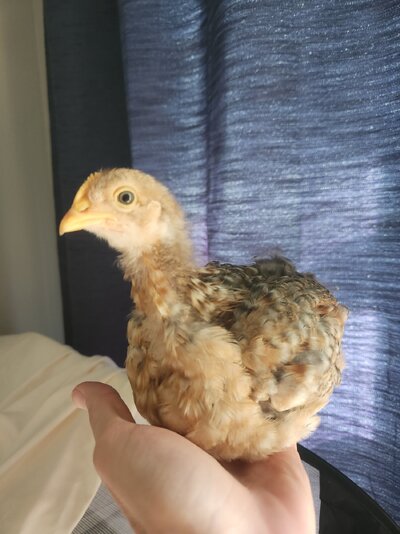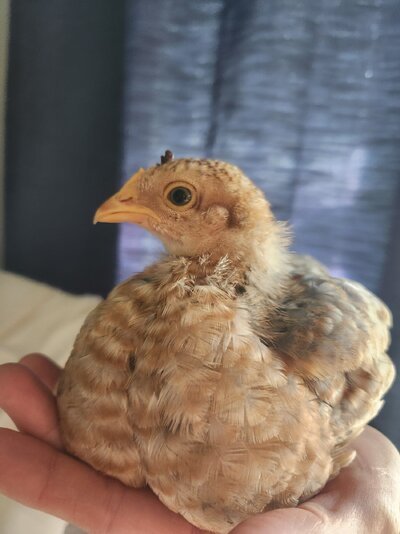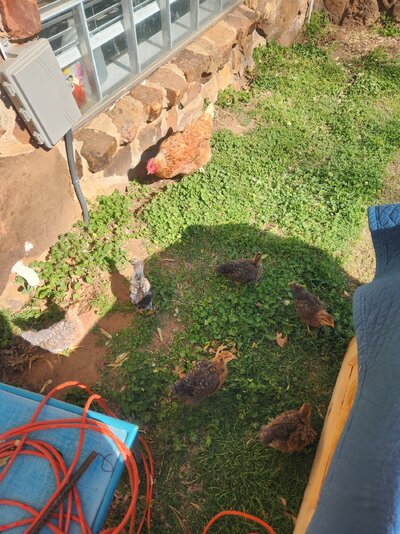Hello there! My question is about the disposition of these baby roos. Are there attributes or traits among roo chicks that would give you a clue about what kind of roo they are going to be? I have had the luxury of raising a group of auto sexing chicks this go round, and have found it interesting to watch the personalities of the boys versus the girls. They are 4 weeks now. This is also the first time of adding a roo to my flock. My question is about universal attributes, because this dynamic made me curious. But I am also trying to assess my own situation. I have one clumsy little bulldozer, short attention span, that goes around causing trouble, picking on the pullets, and has nearly clipped the baby comb completely off the other boy. From day one he was running around grabbing the toes of everyone else and flipping them on their sides rather aggressively. I took them out to free range for just a little bit this morning, and a hen wondered over to say hello. She's pretty sweet so I let her meet them. He bowed up to her and challenged her and started jumping at and snipping at her waddles. Of course she corrected this behavior but he went back for more. I'm feeling like hes not very bright. My second baby roo is sweet, and minds his own business. He just wants to sit with me whenever possible. For me the choice on which one to keep is pretty easy, even if his comb never grows back. (  Its not going to grow back is it?) But I don't want to jump to conclusions without gathering some information first. Like maybe I do want a more dominant rooster to protect and defend and police. Maybe he will be better when he gets bigger. I sort of doubt it, but what does your experience say?
Its not going to grow back is it?) But I don't want to jump to conclusions without gathering some information first. Like maybe I do want a more dominant rooster to protect and defend and police. Maybe he will be better when he gets bigger. I sort of doubt it, but what does your experience say?
Thank you!
Oh these are bielefelders if you are curious.
Thank you!
Oh these are bielefelders if you are curious.
Attachments
Last edited:





